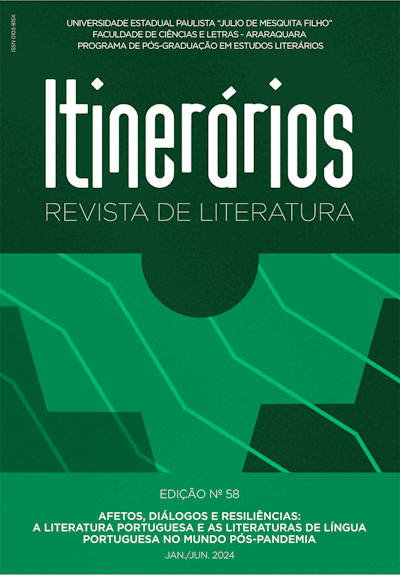olonialism and social inscriptions
trauma and testimony in “A verdade de Chindo Luz”, by Joaquim Arena
DOI:
https://doi.org/10.58943/irl.v1i58.18616Keywords:
Trauma, Colonialism, Testimony, A verdade de Chindo Luz, Joaquim ArenaAbstract
The purpose of this paper is to discuss the relationships between memory, violence, and social inscription of the subject in the novel A verdade de Chindo Luz, by Joaquim Arena, and, based on these points, draw some considerations about the representations of colonialism in the work and its consequences for a state of psychic suffering and non-identitarian belonging of the characters. Joaquim Arena’s novel revolves around a group of Cape Verdean immigrants in Portugal, more specifically focused on the Luz family, which arrived in the country between 1977 and 1978, the only black people in the neighborhood. The structure of the narrative is similar to a detective story, where, from the beginning, mysteries are presented that need to be solved. However, more than the mysteries and their solution in relation to the police investigation, the approach intended here aims to discuss the testimony beyond the legal aspects, in its function of symbolic elaboration of trauma. To do this, it is intended to use authors such as Tzvetan Todorov as theoretical support to discuss narrative structures and the specificities of the detective novel. In addition, authors such as Michele Simondon, Márcio Seligmann-Silva, Sigmund Freud, Vilém Flusser, Cathy Caruth, and Walter Benjamin will be used to think about the relationship between trauma, memory, and testimony in its aspect of symbolic elaboration of extreme events and identitarian belonging.
Downloads
Published
Issue
Section
License
Os manuscritos aceitos e publicados são de propriedade da revista Itinerários. É vedada a submissão integral ou parcial do manuscrito a qualquer outro periódico. A responsabilidade do conteúdo dos artigos é exclusiva dos autores. É vedada a tradução para outro idioma sem a autorização escrita do Editor ouvida a Comissão Editorial.

